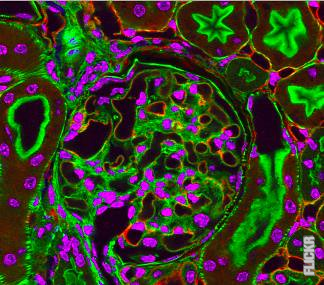Uncovering the Marvels of Kidney Filtration
Kidneys are remarkable organs that play a vital role in maintaining the body’s balance. One of their most awe-inspiring abilities is their exceptional filtration process. Let’s embark on a journey inside the intricate world of blood filtration and discover the secrets behind the kidney’s astonishing filtering mechanism.
Delicate Nephrons: The Filtering Units
The kidneys consist of millions of microscopic filters called nephrons. These tiny structures are responsible for the extraordinary task of blood purification. Each nephron comprises a glomerulus, a convoluted tubule, and a collection duct. Together, they form an intricate network that ensures the removal of waste and toxins from the blood.
The Role of Glomerulus
The glomerulus acts as the initial filtering site. It is a cluster of tiny blood vessels known as capillaries. As blood enters the glomerulus, its high pressure forces fluid and small particles, such as waste products and excess water, out of the blood vessels.
Selective Reabsorption: A Precise Balance
After the initial filtration, the fluid passes into the convoluted tubules. Here, the kidney employs a remarkable process called selective reabsorption. Essential substances, such as glucose, amino acids, and salts, are reabsorbed back into the bloodstream, ensuring they are not lost during filtration. This process maintains the delicate balance of the body’s fluids.
Eliminating Waste: The Final Step
The remaining fluid, now called urine, enters the collection ducts. These ducts gather the urine from multiple nephrons and transport it to the renal pelvis. From there, the urine moves down the ureters and is eventually eliminated from the body through the bladder. This final step ensures the removal of waste products, excess water, and other substances that the body no longer needs.
Post
Post
An Ongoing Process
Kidney filtration is not a one-time event but a continuous process. The kidneys filter around 120-150 quarts of blood daily, constantly monitoring the body’s internal environment. This remarkable feat allows the kidneys to maintain proper hydration, electrolyte balance, and blood pressure.
Guardians of Health
The kidneys’ filtration process is truly awe-inspiring. They meticulously sift through the blood, separating valuable substances from waste products, and ensuring the body’s well-being. Without this extraordinary mechanism, the body would be overwhelmed with toxins and its delicate balance would be disrupted.
In conclusion, the kidneys’ ability to filter blood is a marvel of nature. Through the delicate nephrons, the glomerulus, selective reabsorption, and the elimination of waste, the kidneys maintain the body’s equilibrium. These remarkable organs are the unsung heroes that quietly work to keep us healthy and thriving.



